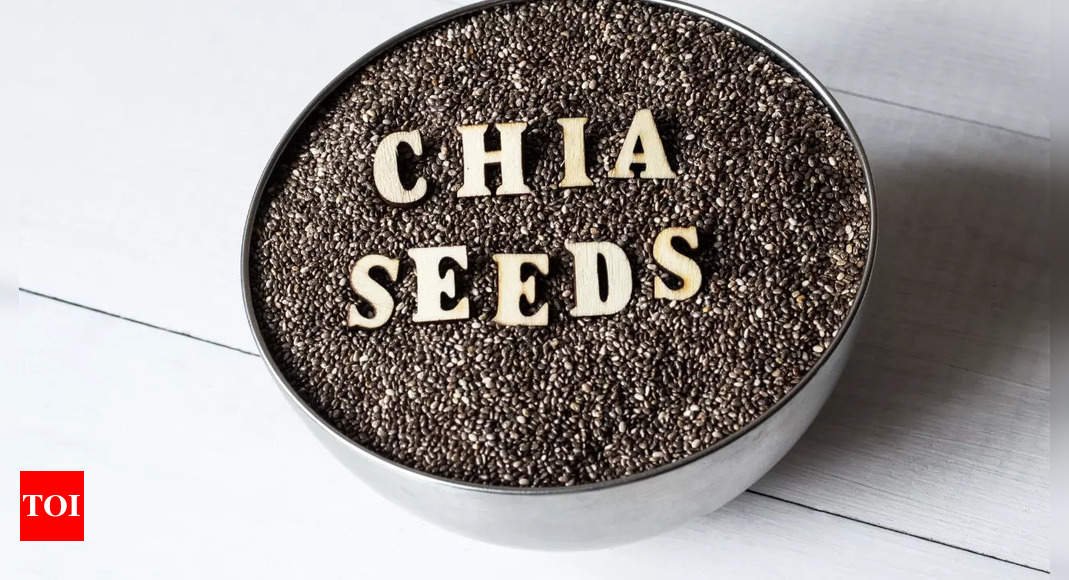What are chia seeds?
Chia seeds come from the Salvia hispanica plant, which is native to Central and South America.
Historically, these tiny black and white seeds were a staple in the diets of the Aztecs and Mayans, revered for their ability to provide sustainable energy. Today, chia seeds are celebrated as a nutrient-dense food packed with antioxidants, omega-3 fatty acids, fibre, and high-quality protein. It has about 28-gram fibre per serving, which supports digestive health, helps regulate blood sugar levels, and promotes a feeling of fullness, making chia seeds a great addition to a balanced diet for overall wellness.
According to the USDA National Nutrient Database, one ounce (approximately two tablespoons) of chia seeds contains about:
Fibre: 10 grams
Protein: 4 grams
Fat: 9 grams (5 grams of omega-3 fatty acids)
Calcium: 18 per cent of the Recommended Dietary Allowance (RDA)
Magnesium: 30 per cent of the RDA
Phosphorus: 27 per cent of the RDA
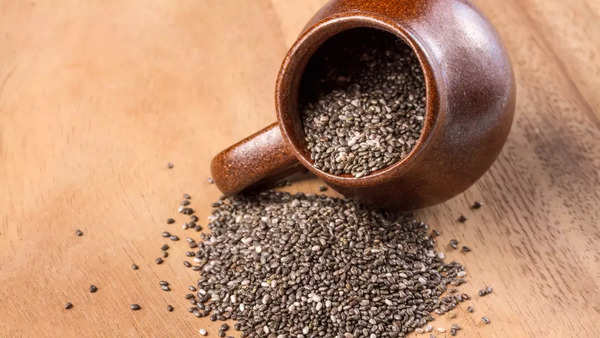
Given their impressive nutritional profile, it’s no wonder chia seeds are often recommended as a dietary addition. However, like any superfood, moderation is key.
How much chia seed is recommended daily?
The appropriate daily intake of chia seeds depends on several factors, including age, sex, health status, and dietary needs. Most health experts agree that consuming about one to two tablespoons (15 to 30 grams) of chia seeds per day is a safe and effective amount for most adults.
Nutritionist and Diabetes Educator Rashi Chowdhary says, “Chia seeds are great for adding a boost of nutrition to your meals, but don’t rely on them solely for your nutrient intake. Use them as a part of a diverse and colourful diet to get a full spectrum of nutrients.”
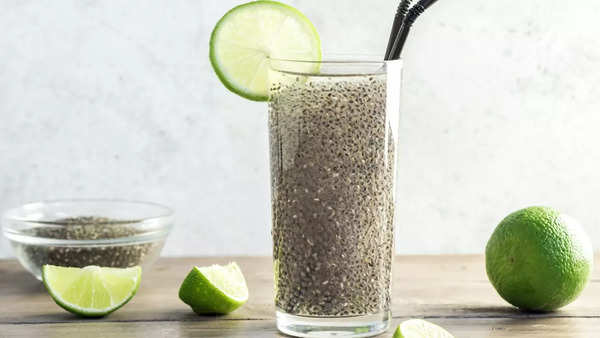
Health benefits of chia seeds
Rich in omega-3 fatty acids: Chia seeds are one of the best plant-based sources of alpha-linolenic acid (ALA), a type of omega-3 fatty acid that is crucial for heart health. Omega-3s have been shown to reduce inflammation, lower the risk of heart disease, and support brain health.
High fibre content: With nearly 40 per cent fibre by weight, chia seeds are one of the best sources of dietary fibre available. This high fibre content helps promote digestive health by aiding in bowel regularity and feeding beneficial gut bacteria. It also contributes to a feeling of fullness, which can aid in weight management.
Good source of protein: Chia seeds provide a complete protein, containing all nine essential amino acids that the body cannot produce on its own. This makes them an excellent protein source, especially for vegetarians and vegans.
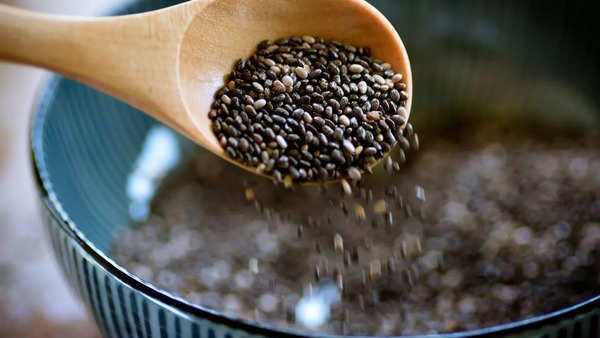
Antioxidant-rich: Chia seeds are rich in antioxidants, which help protect the body from oxidative stress and reduce inflammation. These antioxidants play a role in preventing chronic diseases such as heart disease and cancer.
Supports bone health: Due to their high calcium, phosphorus, magnesium, and protein content, chia seeds contribute to bone health and can be particularly beneficial for those who are lactose intolerant or do not consume dairy products.
Aids in weight loss: Chia seeds can be a valuable addition to a weight loss diet. Due to their high fibre and protein content, they help increase satiety and reduce hunger, which can lead to lower calorie intake throughout the day. When chia seeds are soaked in liquid, they expand and form a gel-like consistency, which can help you feel full and satisfied, reducing the temptation to snack on less healthy foods.
Potential side effects and risks of overconsumption
While chia seeds are safe for most people, consuming them in excess can cause digestive discomfort due to their high fibre content. Moreover, chia seeds can absorb up to 12 times their weight in water, which means they can expand significantly in your stomach. This can cause bloating or stomach cramps if consumed in large quantities.
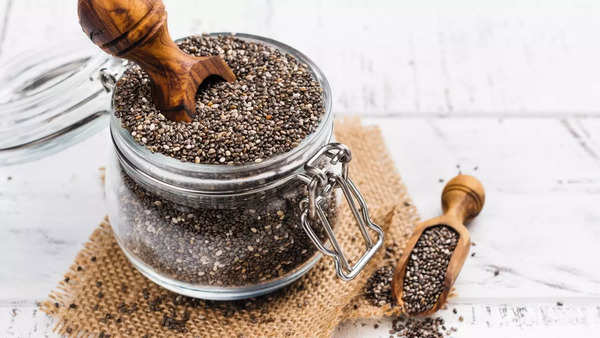
Research and studies on chia seed consumption
Several studies have investigated the health effects of chia seeds, focusing on their role in weight management, heart health, and blood sugar control.
A study published in the Journal of the American Dietetic Association found that consuming 25 grams of chia seeds daily for 12 weeks reduced cardiovascular risk factors in overweight and obese adults with type 2 diabetes. The participants experienced significant reductions in body weight, waist circumference, and triglyceride levels, suggesting that chia seeds may benefit those looking to lose weight or manage blood sugar levels.
ALSO READ: 9 reasons to consume chia seeds soaked water on an empty stomach
Another study published in the European Journal of Clinical Nutrition indicated that chia seeds could help reduce blood pressure in individuals with hypertension. The researchers concluded that the high fibre, omega-3 fatty acid content, and antioxidant properties of chia seeds might contribute to their cardioprotective effects.
However, despite these promising findings, more research is needed to fully understand the long-term effects of chia seed consumption and the optimal daily intake for various populations.
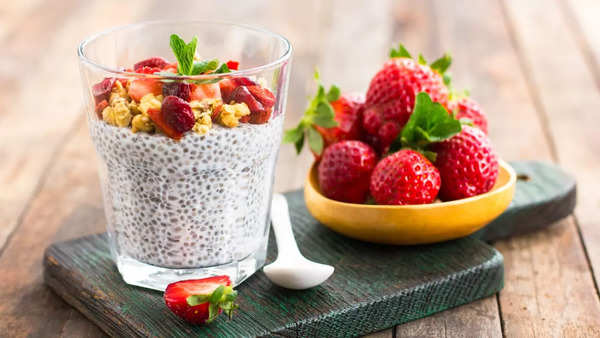
How to incorporate chia seeds into your diet
If you’re new to chia seeds or looking for creative ways to include them in your diet, here are a few simple suggestions:
Smoothies: Add a tablespoon of chia seeds to your morning smoothie for an extra boost of fibre, protein, and omega-3 fatty acids.
7 amazing health benefits of Chia seeds
Overnight Oats: Mix chia seeds with oats, milk, and your favourite toppings, and let them sit in the refrigerator overnight. In the morning, you’ll have a nutritious and filling breakfast ready to go.
Yoghurt Parfait: Sprinkle chia seeds over yoghurt with fresh fruit and a drizzle of honey for a delicious and healthy snack.
Baking: Incorporate chia seeds into your baked goods, such as muffins, bread, or cookies, to enhance their nutritional value.
Chia Pudding: Make a simple chia pudding by mixing chia seeds with milk or a plant-based alternative and sweetening it with honey or maple syrup. Let it sit in the refrigerator for a few hours or overnight to thicken.
Chia seeds are a nutrient-dense superfood that can be a valuable addition to a healthy diet. However, like all foods, they should be consumed in moderation. One to two tablespoons per day is a safe and effective amount for most people to enjoy the health benefits without any adverse effects. Always listen to your body and adjust your intake accordingly, and consult with a healthcare professional if you have any concerns or pre-existing conditions. With their numerous health benefits and versatile culinary uses, chia seeds are indeed a small but mighty addition to your daily routine.
(Images courtesy: Canva)
Source link
Modified by Maaaty at Cheap Generic Pharmacy
